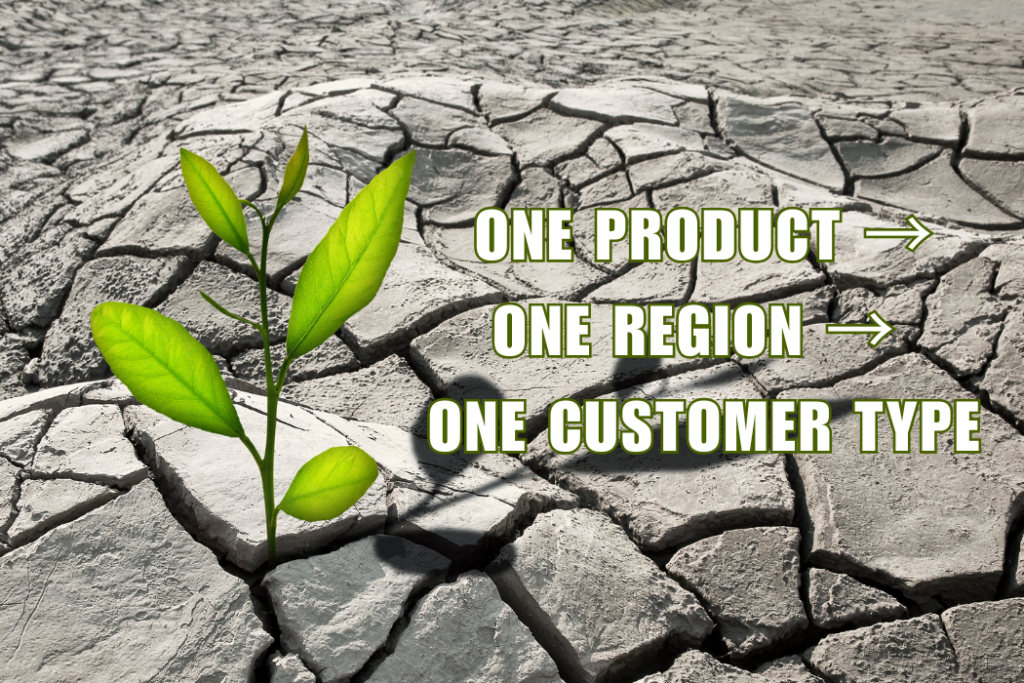
How Conflict and Failure Can Be the Secret to a Startup’s Success
A Two-Part Series on Transforming Setbacks into Strengths
In Part 1 of this series, we examined how some of today’s most successful startups emerged stronger from their initial failures, with companies like Slack pivoting from a failed gaming venture to become a communication giant. While these stories prove that failure can catalyze success, the crucial question remains: How can startups actively transform their setbacks into advantages?
This second installment provides the practical framework for implementing a failure-positive culture in your startup. We’ll explore specific strategies for fostering constructive conflict, developing crucial mindset shifts, and building systems that turn inevitable setbacks into powerful tools for growth. Whether you’re currently navigating challenges or preparing for future obstacles, these actionable approaches will help you harness the hidden potential in every failure.
Constructive Conflict
Successful startups understand that disagreement and tension, when properly channeled, can lead to breakthrough innovations. The key lies in creating an environment where differing viewpoints are not just tolerated but actively sought out. This approach to conflict represents a mature understanding that innovation often emerges from the collision of different perspectives and ideas.
Plato emphasizes the importance of maintaining a critical perspective: “Get hyper-critical about how you do things and [if] you are doing them the best way.” This approach to constructive conflict extends beyond product development to every aspect of the business, from marketing strategies to operational procedures.
Also, creating a culture of constant evaluation and feedback can help companies optimize everything from their messaging to their operations. The key is creating an environment where feedback is:
- Regular and systematic
- Focused on improvement rather than blame
- Based on concrete metrics and observations
- Actionable and specific
- Welcomed at all levels of the organization
Particularly crucial is the ability to receive and act on customer feedback. “When things are not selling,” Plato notes, “the reason is not because the universe has got a problem with it or everybody is stupid…The reason is that your message isn’t right or your product isn’t right or you’re not talking to the right people.”
Conflict Resolution Skills
Leadership in startups requires sophisticated conflict resolution skills, particularly when navigating through challenging transitions and pivotal decisions. “Part of that was sitting around and thinking, who are my customers and what do they want and what’s on their minds,” Plato explains, emphasizing how understanding different perspectives is crucial for resolving conflicts productively.
Effective conflict resolution in startups operates on multiple levels:
- Strategic Conflicts: When different visions for the company’s future clash
- Operational Conflicts: Day-to-day disagreements about processes and execution
- Personnel Conflicts: Interpersonal issues that can affect team dynamics
- Resource Conflicts: Disputes over allocation of limited resources
One of the most challenging aspects of conflict resolution is maintaining clear communication while making difficult decisions. As Plato notes, “We live in a world now where brevity is how you grab people. Like the less you say, the stronger you become… Say what the person needs to hear.” This principle applies equally to handling internal conflicts—clear, direct communication often prevents misunderstandings and helps resolve disputes more effectively.
The key elements of successful conflict resolution in startups include:
- Establishing clear communication protocols
- Creating structured processes for addressing disagreements
- Maintaining focus on objective data and measurable outcomes
- Making timely decisions to prevent conflict escalation
- Finding balance between team cohesion and necessary change
- Documenting resolutions and lessons learned
This practical approach to problem-solving and conflict resolution helps teams move past personal disagreements and focus on what truly matters—building a successful company. It also highlights how effective conflict resolution often leads to innovative solutions that might not have been discovered without the initial tension or disagreement.
Embracing a Growth Mindset
Mindset Shift
“Perseverance is success,” Plato emphasizes. “Like who you know, the money you have, the product you make, all that is important, but that isn’t ultimately what will make you successful. Perseverance is really the only thing that will make you successful.”
This mindset shift involves several crucial elements:
- Viewing failures as experiments rather than endings
- Understanding that setbacks are temporary and instructive
- Recognizing that success often requires multiple attempts
- Maintaining focus on long-term goals despite short-term challenges
The Role of Emotional Intelligence
One crucial aspect of handling failure is learning to separate personal identity from business setbacks. As Plato observes, “What happens to a lot of founders is they fail and they start to say, this is a failure of me, personally… That’s the moment where you need to kind of point yourself inward and go, what can I learn from this?”
This emotional intelligence manifests in several key ways:
- Self-awareness during challenging times
- Ability to maintain perspective
- Resilience in the face of setbacks
- Capacity to lead others through uncertainty
- Skill in managing stress and pressure
“I had a diagram on my wall,” Plato shares, “it had one line sort of going up and to a big smiley face and one sort of hit a point and then went down and hit like a big frowny face… You can focus on the sort of upward trajectory. What is the change that has to happen at this failure point?”
Fostering a Culture of Experimentation
Creating an environment where failure is seen as a stepping stone to success requires intentional leadership. “Don’t ever feed failure. Don’t ever give it energy,” advises Plato. Instead, focus on learning and moving forward.
Key elements of an experimental culture include:
- Clear parameters for acceptable risk
- Regular review and learning processes
- Celebration of both successes and instructive failures
- Resources allocated for innovation and testing
- Protection for team members who take smart risks
Practical Steps for Turning Failures into Success
Debriefing Sessions
Implement regular reviews that focus on learning rather than blame. Plato emphasizes the importance of systematic evaluation: “Part of building a successful company is constantly reevaluating how you’re doing.”
Effective debriefing sessions should include:
- Regular scheduled reviews of both successes and failures
- Structured analysis of what worked and what didn’t
- Documentation of lessons learned
- Action plans for implementing improvements
- Follow-up mechanisms to ensure learning is applied
Building Adaptive Processes
Flexibility and quick adaptation are essential. “The willingness to change and ability to change quickly” are crucial attributes for startup success, according to Plato. This requires:
- Lightweight decision-making processes
- Clear communication channels
- Regular market feedback loops
- Empowered teams who can act quickly
- Systems that support rapid iteration
Plato particularly emphasizes the importance of financial operations: “I tell every founder I met, go find a great small business controller… That role is super critical because you need a person in that role who can keep track of the books and keep track of the money and make sure you get paid.”
Setting Measurable Goals
Use concrete metrics to validate your approach. “Sales is really the way you can vet whether something works or doesn’t,” Plato explains. “And when things are not selling, then there’s a reason for that.”
Effective goal setting includes:
- Clear, quantifiable objectives
- Regular measurement and reporting
- Adjustment mechanisms based on results
- Alignment between metrics and strategy
- Balance between short-term and long-term goals
Conclusion: The Long-Term Value of Embracing Errors
The path to startup success is rarely linear. As Plato wisely notes, “There’s an answer to your problems. You just don’t know it yet.” The most successful founders aren’t those who avoid failure, but those who embrace it as an essential part of their journey.
His final advice resonates deeply: “Welcome to the club. We’ve all been there… The difference between a founder and everybody else is you don’t let it get to you. You turn around, you persevere, you look for the answers and you get back out there because you can’t give up.”
The key lies in maintaining perspective and persistence. Every setback carries within it the seeds of future success—if you’re willing to learn from it. For entrepreneurs willing to embrace this mindset, failure becomes not just an acceptable outcome but a vital tool for growth and innovation.
This approach to failure and conflict isn’t just about survival—it’s about building stronger, more resilient companies that can adapt and thrive in an ever-changing business landscape. The most successful startups of tomorrow will be those that have learned to harness the transformative power of failure today.













